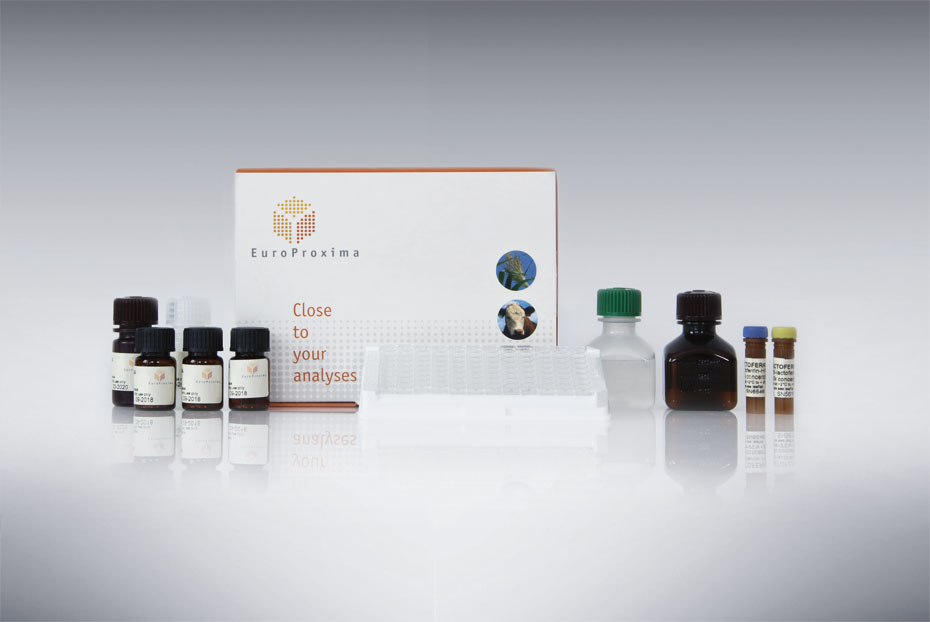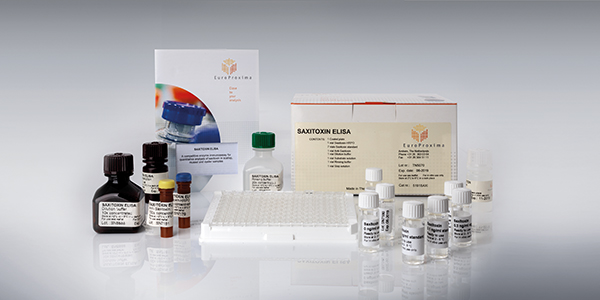
EuroProxima Okadaic Acid
Art. No. 5191OKA
Product info about EuroProxima Okadaic Acid
Intended use
EuroProxima Okadaic Acid is a competitive enzyme immunoassay for quantitative analysis of domoic acid in scallop, mussel and oyster samples.
General Information
High concentrations of shellfish toxins can accumulate in filter feeders such as clams, mussels, and oysters causing illness amongst people who eat them. There are four syndromes called shellfish poisoning, i.e paralytic shellfish poisoning (PSP), neurotoxic shellfish poisoning (NSP), diarrhetic shellfish poisoning (DSP) and amnesic shellfish poisoning (ASP). DSP is primarily caused by the polyether toxin okadaic acid (OA) and several analogues of OA, among which the dinophysistoxins DTX1, DTX2, and DTX3.
In the European Union, Regulation (EC) No 853/2004 stipulates that live bivalve mollusks must not contain OA in total quantity (measured in the whole body or any part edible separately) that exceeds a limit of 160 μg OA equivalents (OA, dinophysistoxins, and pectenotoxins together) per kilogram (ppb).
The EuroProxima Okadaic Acid ELISA is a competitive enzyme immunoassay based on antibodies directed against okadaic acid.
Accessories
Dear customers,
we now provide the documents for our products in an electronic format which include the Instructions for Use (IFU), Safety Data Sheets (SDS), Application notes and the Certificate of Analysis (CoA). For batches placed on the market after 1st of January 2024, you can find our documents on the eIFU portal eifu.r-biopharm.com/RBNL.
| Specifications | |
|---|---|
| Art. No | 5191OKA |
| Test format | Microtiter plate with 96 wells (12 strips with 8 wells each). |
| Sample preparation | For mentioned matrices fast and efficient extraction methods are included in the kit description. |
| Incubation time | 45 min (20 - 25 °C) |
| LOD (Detection Limit) | Mussel/oyster 50 µg/kg (ppb) |
| Detection Capability | Mussel/oyster 40 µg/kg |
| Validated matrices | Mussel and oysters. |
| Detected analyte | Okadaic acid in mussel and oyster samples. |
| Evaluation | Microtiter plate spectrophotometer (450 nm) |
| Files | |
|---|---|
| Instructions | English |
| MSDS | 5191oka.zip (English) |



